TCB IDA
Webinars 2021
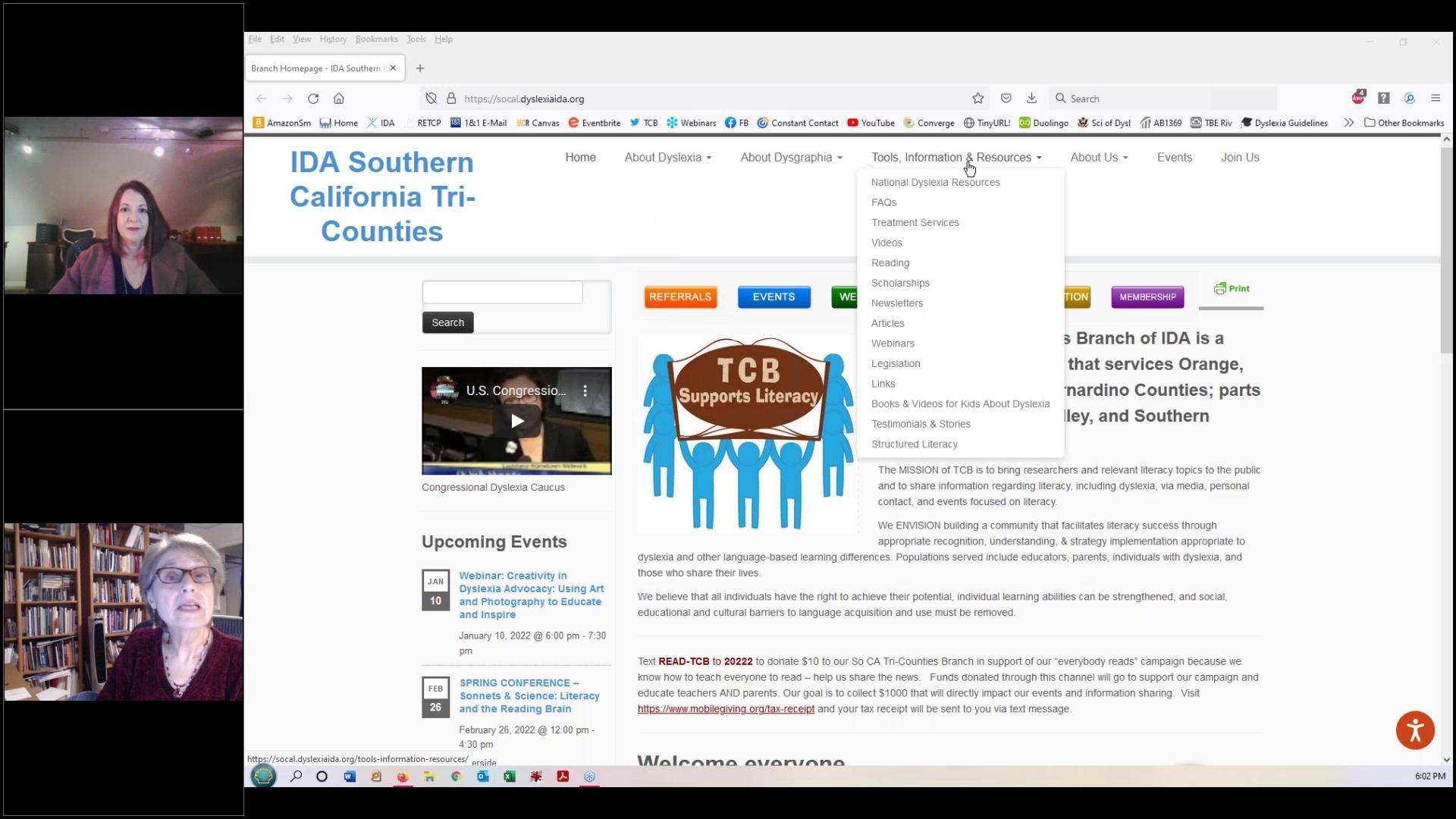
Supporting Literacy Success with Reading Progress and Immersive Reader
December 7, 2021
Presenter: Rachel Berger
Students who struggle with reading are at a disadvantage from their peers engaging in their learning community and demonstrating knowledge. In this session we will look at the free, accessible Immersive Reader tool and it's many applications which help to increase accessiblity and level the playing field for struggling readers. We will also learn about the NEWLY RELEASED Reading Progress tool designed to analyze and monitor the progress of readers. Reading Progress was developed with feedback from educators and top reading experts like Dr. Tim Rasinski, Dr. Mark Seidenberg and Dr. Pam Allyn and over 300 educators.
Reading Progress works great for emerging readers, struggling readers, non-native speakers, special education and adult education. This tool is free and accessible for educators and students everywhere!
Supporting
Literacy Success
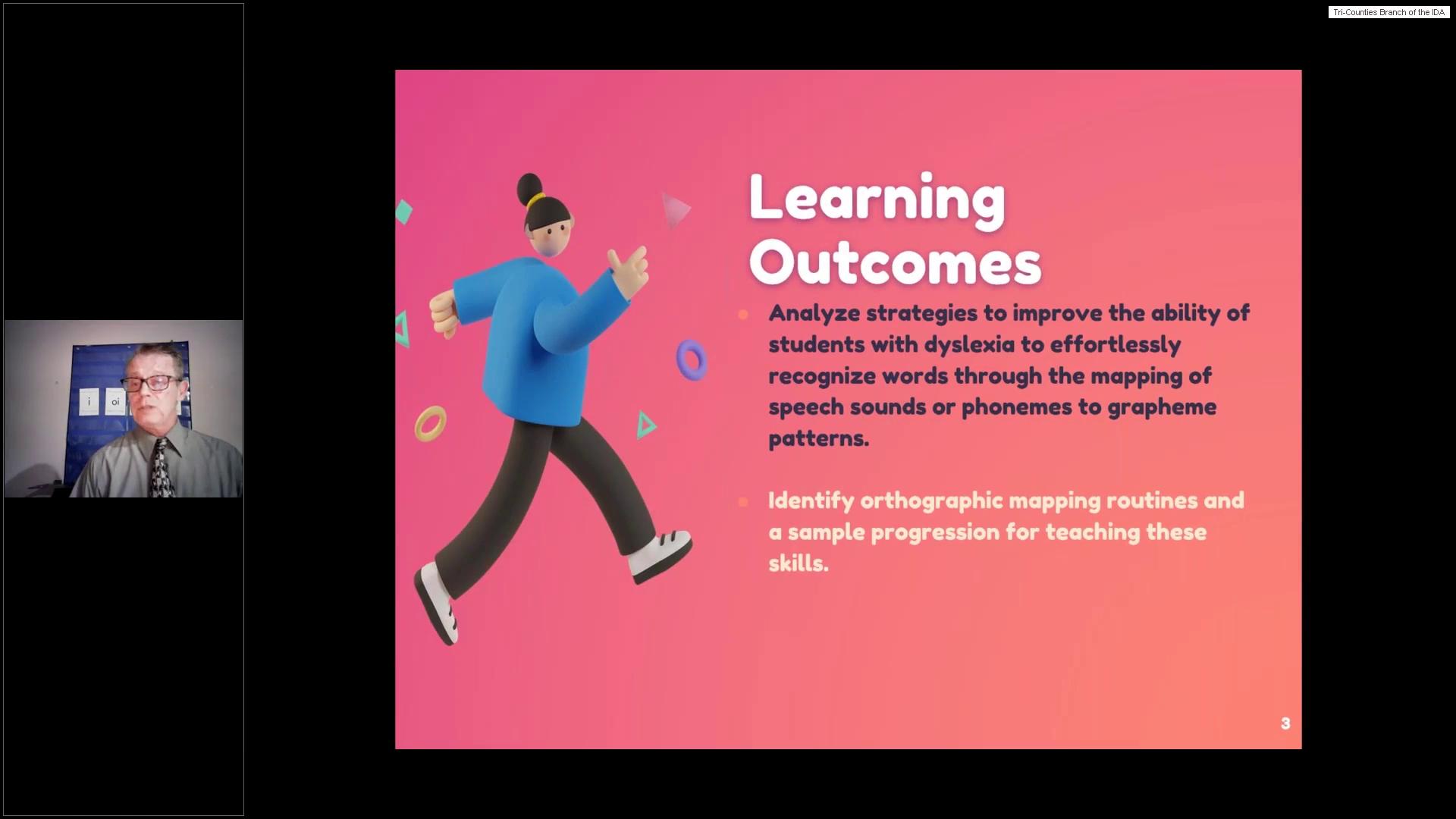
Map Your Way to Reading and Spelling Success
November 5, 2021
Learn about the value and necessity to teach orthographic mapping within a structured literacy approach. Improve the ability of students with dyslexia to effortlessly recognize words through the mapping of speech sounds or phonemes to grapheme patterns. Orthographic mapping assists students with reading fluency and spelling difficulties, but benefits all students. Partcipants will leave the training with practical orthographic mapping routines and a sample progression for teaching these skills. Orthographic mapping can be integrated at both the primary and secondary levels to assist students in attaining proficient reading and spelling skills.
Map Your Way
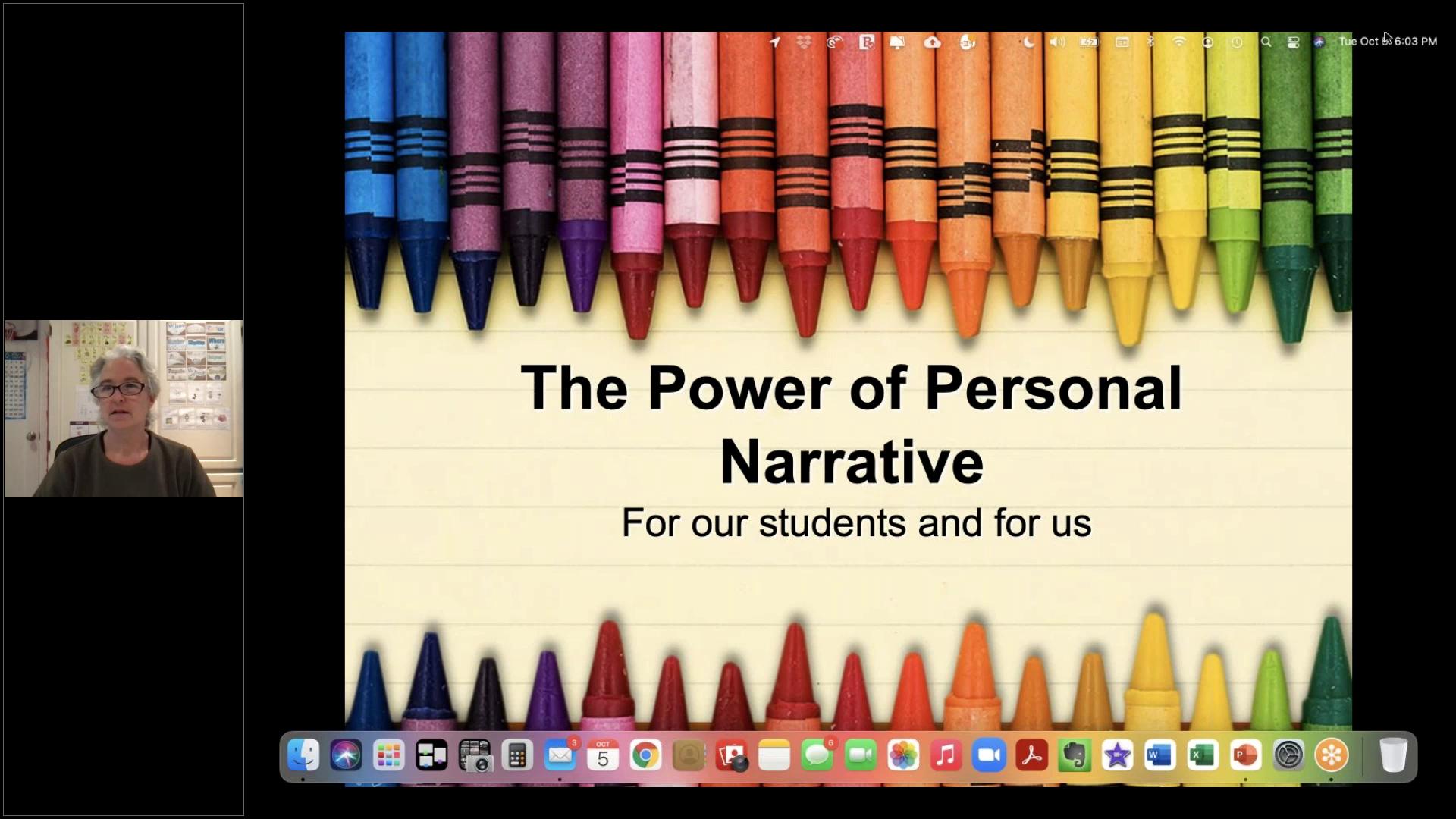
The Power Of Personal Narratives
October 5, 2021
If you work with kids, you probably work on narrative writing. But did you know that working on narratives—in both oral and written language has profound effects from helping students to work through emotional issues and trauma, to improving health outcomes from decreased chance of drug abuse and crime to higher chances of fighting cancer and healing from heart attacks, to increasing executive functions and problem solving, all the way through to creating a stronger, more coherent and efficacious sense of self. Join board certified educational therapist Diana Kennedy to explore the many facets and ways to harness the Power of Personal Narrative.
Personal Narratives
.jpg)
Effective Writing- Effective Sentences: A Guide
August 12, 2021
This webinar will discuss wonderful writing strategies. We will take you through a series of steps to assess, prioritize, and teach effective sentence writing. The presenters will demonstrate methods for addressing common grammar errors and for adapting to a variety of age groups. Registrants will receive downloadable materials to use for their own assessments and interventions.
Effective Writing
.jpg)
Erasing The Misery
July 15, 2021
ERASING THE MISERY (FUNCTIONAL STRATEGIES TO READ AND SPELL BIG WORDS) Really Great Reading has many strategies. Among them is the "lose the rules" approach. This eliminates stress by teaching students how to use functional strategies and manipulatives to break words into syllables to effectively read and spell big words with ease and accuracy. The session will review phonics bascis and 6 syllable patterns. Thus, the students will learn how to look at words without fear! RGR's technique is explicit, systematic, and multi-sensory. Appropriate for parents, teachers, and tutors.
Erasing The Misery
.jpg)
Dyslexia: My Super Power
June , 2021
ERASING THE MISERY (FUNCTIONAL STRATEGIES TO READ AND SPELL BIG WORDS) Really Great Reading has many strategies. Among them is the "lose the rules" approach. This eliminates stress by teaching students how to use functional strategies and manipulatives to break words into syllables to effectively read and spell big words with ease and accuracy. The session will review phonics bascis and 6 syllable patterns. Thus, the students will learn how to look at words without fear! RGR's technique is explicit, systematic, and multi-sensory. Appropriate for parents, teachers, and tutors.
Dyslexia
My Super Power
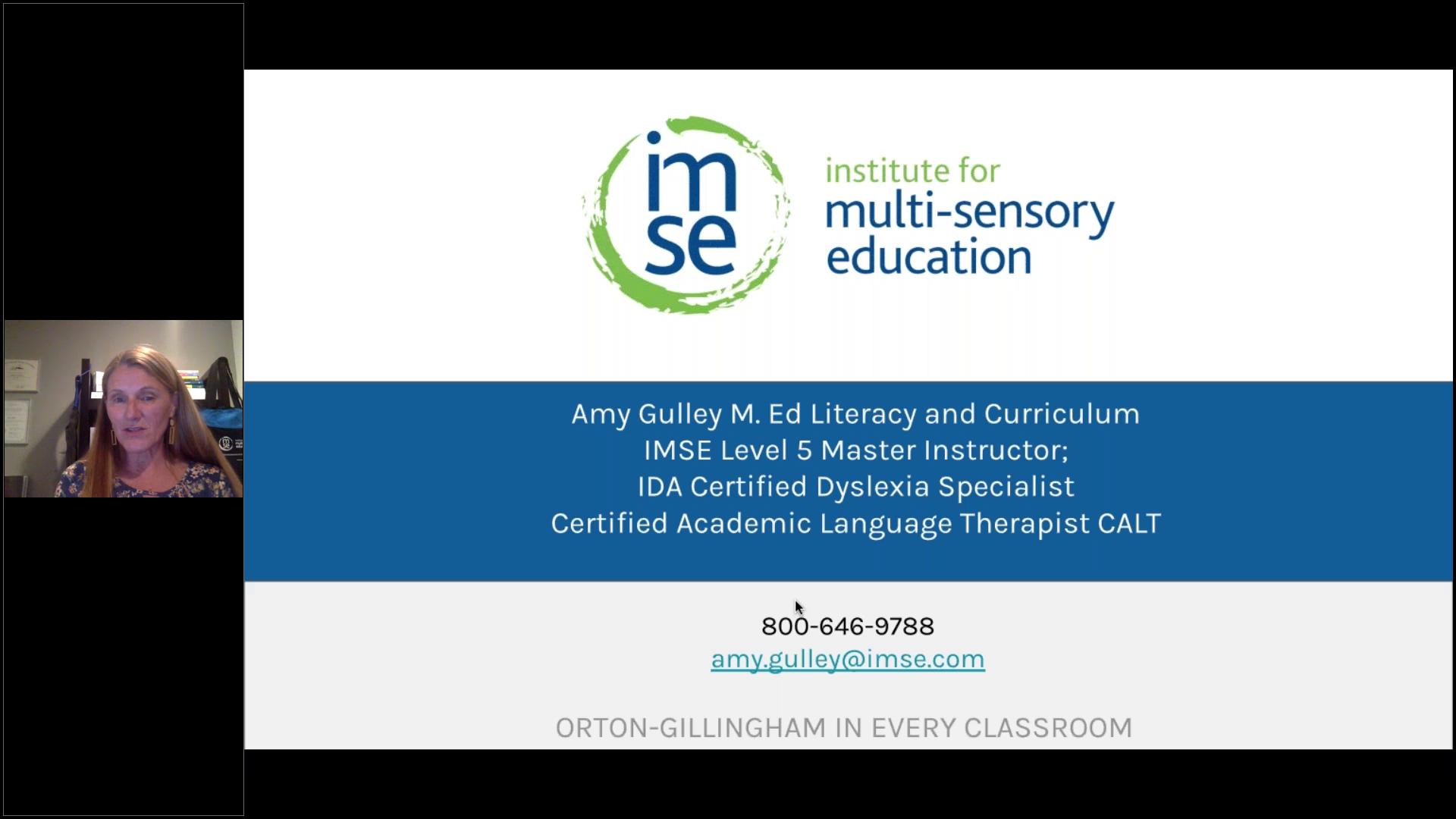
Structured Literacy
& IMSE's Orton-Gillingham Approach
May 17, 2021
Presenter: Amy Gulley
This presentation takes you through a journey of what Structured Literacy is and how IMSE's Orton-Gilligham approach serves all TIER levels of instruction and strategies for teachers to use in their classrooms, small groups or one-on-one intervention.
Structured Literacy
& IMSEs OGA
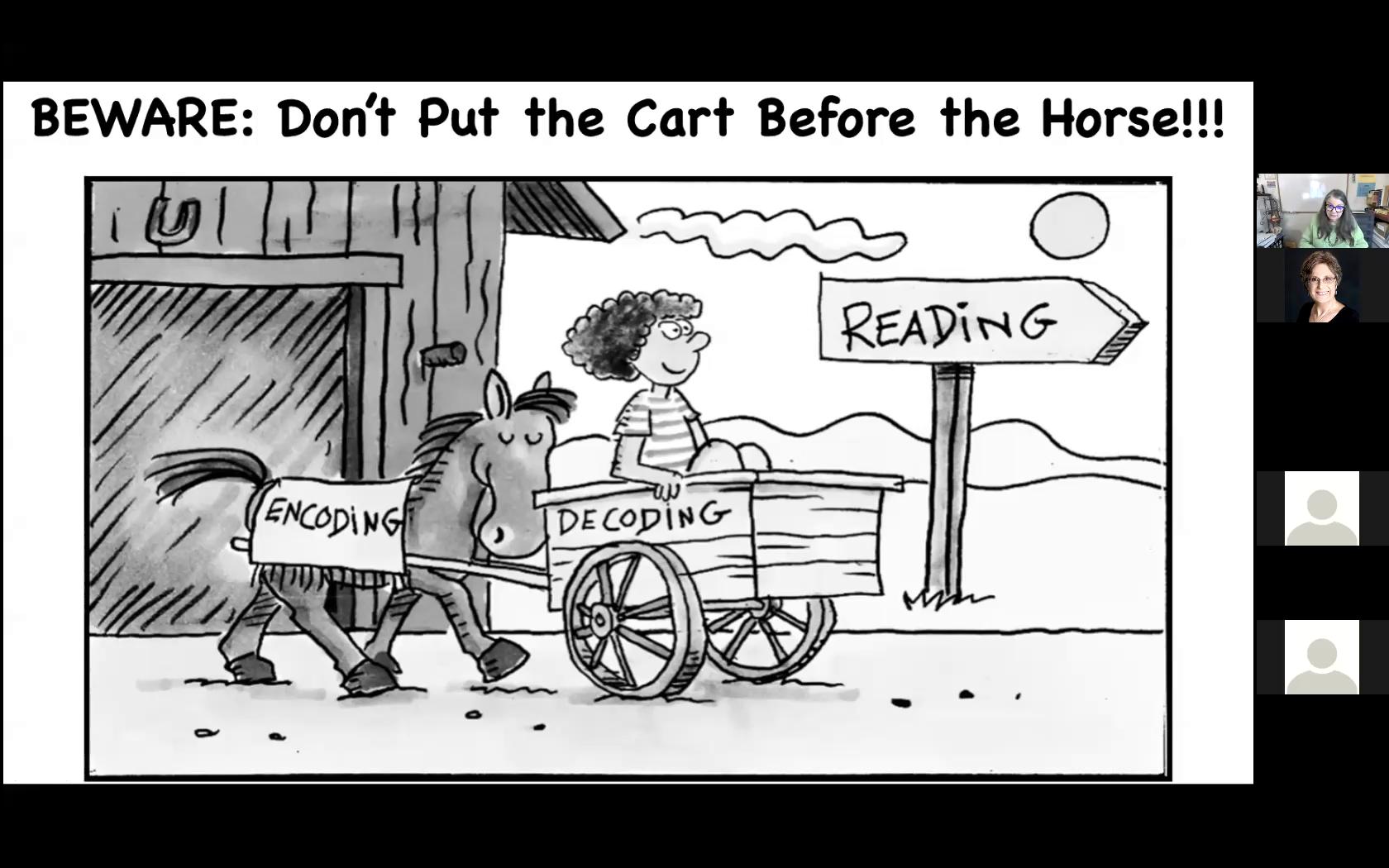
Continuum of Decoding Strategies
➜ EXPLICIT—SYSTEMATIC—CUMULATIVE
a necessary stop on the road to accurate word recognition and fluent text reading
April 28, 2021
Presenter: Nancy Cushen White
Use of systematic decoding strategies is a reliable path to accurate identification of the vast variety of English words—simplest to most complex. While the alphabetic principle is a foundation of English orthography, learning to read and write is a process of increasing awareness and integration of phonology, orthography, and morphology (Berninger, 2010). Phonemic proficiency and grapheme-phoneme proficiency (Kilpatrick, 2016)—in addition to guided practice with use of explicit systematic cumulative decoding strategies for word identification—are prerequisites for orthographic mapping (word recognition).
Continuum of
Decoding Strategies
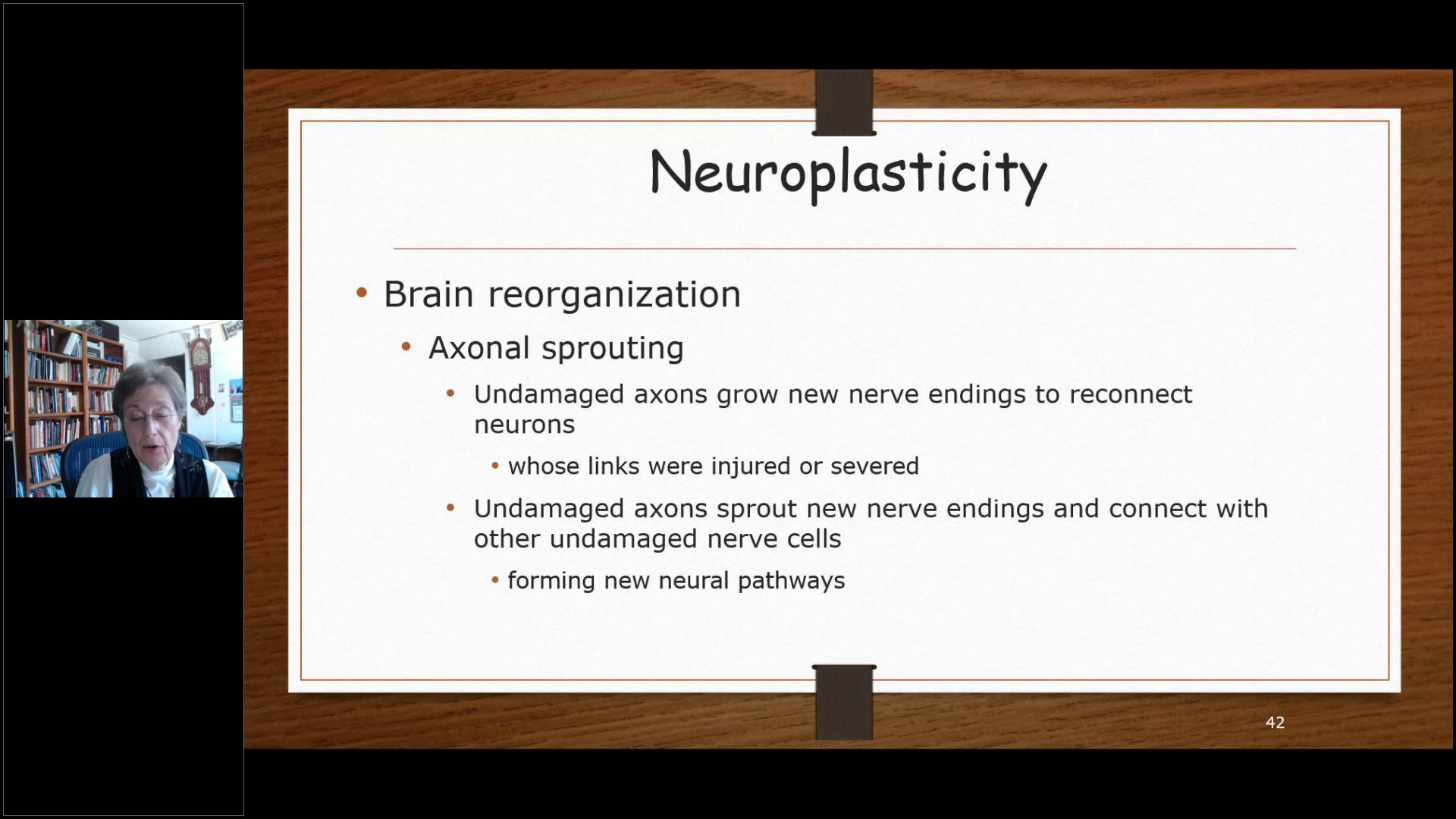
The Brain and Memory - Plus Strategies
March 15, 2021
Presenter: Regina Richards
This webinar covers the brain, a discussion of memory, and study/learning strategies. Students value by understanding how their brain works as this helps them appreciate memory strategies. In studying the brain, we will focus on various components which aid the learning process and how students can enhance their efficiency. The memory component will review the process of memory and provide strategies to enhance each of the various steps within the process. The sections on strategies will cover a range of strategies for different subjects. The strategies are designed to be especially valuable for students who struggle with learning but are also useful for ALL students. There will be strategies for all ages.
The Brain & Memory
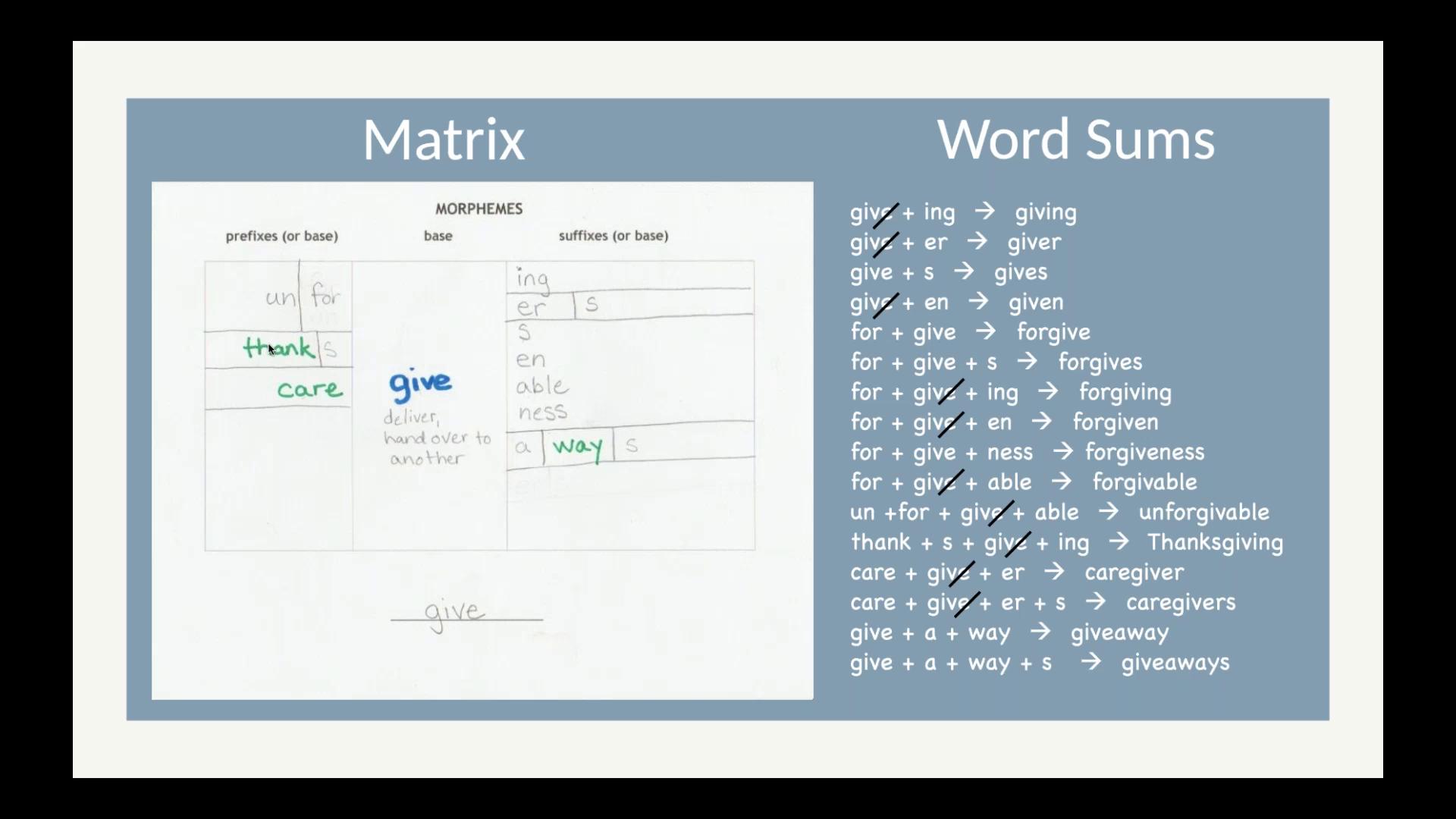
Teaching Morphology and Phonology Awareness to Improve Basic Skills
February 18, 2021
Presenters: KELLI SANDMAN-HURLEY, Ed.ED and TRACY BLOCK-ZARETSKY
Traditional phonics programs look at decoding and encoding words primarily through pronunciation and syllables. In this webinar we will show how looking at how phonology works in the context of morphology first can help students make sense of words for decoding and encoding. We will walk through how to conduct word study with a student looking through morphology and then phonology. We will show how studying any given word family allows for building better understanding of how the English language is truly structured.
Teaching Morphology
and Phonology
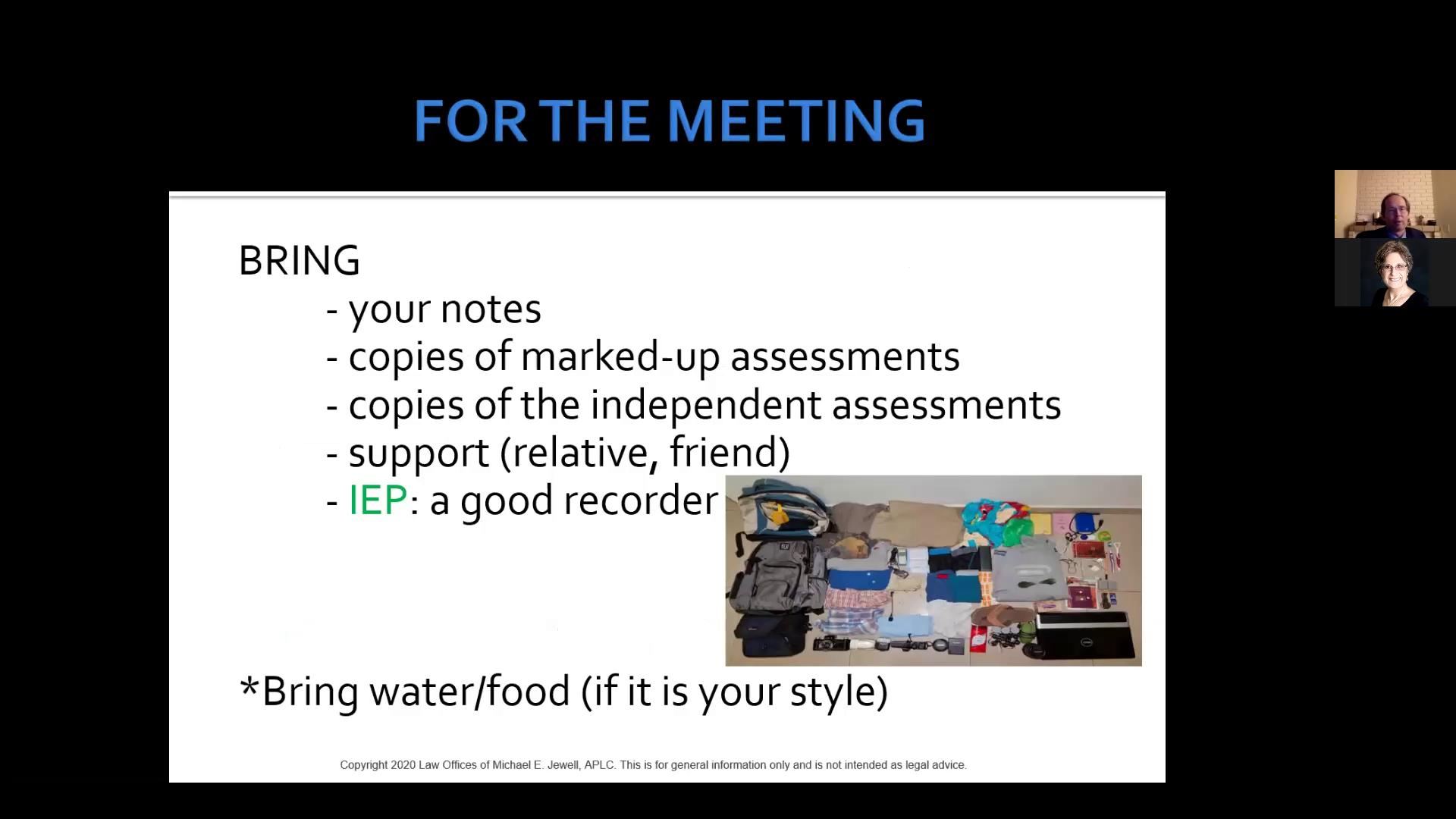
IMPROVING SPELLING
TO MAKE WRITING AND READING GAINS
January 28, 2021
Presenters: KELLI SANDMAN-HURLEY, Ed.ED and TRACY BLOCK-ZARETSKY
Spelling is often left to memorization. A student may pass the weekly test, but then not be able to spell or even read those same words just days or weeks later. If students were taught the underlying structure of English spellings, they would be able to understand English words better to help improve decoding (reading) and encoding (spelling). In this webinar participants will get an overview of how English words do have logical spellings and how teaching spelling through morphology and phonology can help students with their literacy skills. Participants will be introduced to instructional strategies based on the STRUCTURED WORD INQUIRY approach to help teach spelling in a structured, explicit/logical, multisensory approach to assist all students in their classroom, small group, or individual tutoring lessons.
Improving Spelling